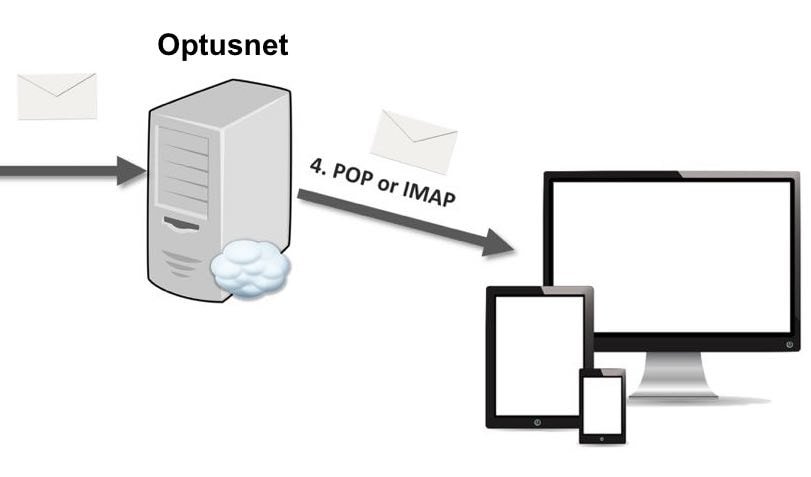Exams are a crucial part of the educational journey, serving as an assessment of knowledge and skills acquired during a specific period. However, they can also be a source of great anxiety and stress, especially when taken online. The digital format adds a layer of complexity and unfamiliarity that can exacerbate these feelings. In this comprehensive guide, we’ll delve into expert insights and strategies to help you conquer exam anxiety and stress, specifically in the context of online exams.
Understanding Exam Anxiety
Before we explore strategies to combat exam anxiety, it’s essential to understand what it is and how it manifests. Exam anxiety, also known as test anxiety, is a feeling of unease or apprehension experienced before or during an exam. This can negatively impact performance and hinder the ability to demonstrate knowledge and skills accurately.
Common Causes of Exam Anxiety
- Fear of Failure: The fear of failing an exam or not meeting one’s expectations can trigger anxiety.
- Lack of Preparation: Insufficient preparation due to procrastination or other reasons can lead to anxiety.
- High Expectations: Pressure from oneself, family, or peers to perform exceptionally well can contribute to anxiety.
- Past Negative Experiences: Previous negative exam experiences can create a fear of repetition, causing anxiety.
Strategies to Alleviate Exam Anxiety for Online Exams
1. Effective Time Management and Planning
Proper time management is crucial for help for online exam. Creating a study schedule, allocating time for each subject, and sticking to the plan can help reduce anxiety related to feeling unprepared. Break down the study material into manageable chunks and set achievable goals.
2. Familiarize Yourself with the Exam Format
Understanding the format of the online exam, including the types of questions, interface, and tools available, can alleviate anxiety. Practice with past exam papers or use online resources that simulate exam conditions to get comfortable with the platform.
3. Simulate Exam Conditions
Recreate the exam environment as closely as possible during your practice sessions. Sit in a quiet room, time yourself, and refrain from distractions to simulate the actual exam scenario. This helps in adapting to the pressure and reduces anxiety during the real exam.
4. Practice Mindfulness and Relaxation Techniques
Incorporate mindfulness exercises, deep breathing, or progressive muscle relaxation into your daily routine. These techniques can help manage anxiety by promoting relaxation and improving focus, ultimately benefiting your exam preparation and performance.
5. Regular Exercise and Healthy Diet
Physical health plays a significant role in mental well-being. Engage in regular physical exercise and maintain a balanced diet. Exercise releases endorphins, which are natural mood boosters, and a nutritious diet supports brain function, aiding in reducing anxiety.
6. Seek Support from Peers and Professionals
Don’t hesitate to discuss your anxieties with friends, family, or a mental health professional. Talking about your concerns can provide emotional support and possibly offer new perspectives or coping strategies.
7. Practice with Mock Online Exams
Familiarize yourself with the online exam platform by taking advantage of practice tests or mock exams provided by your educational institution. This will help you get accustomed to the interface and reduce anxiety associated with the technical aspects of the exam.
8. Set Realistic Expectations
Set achievable goals and expectations for yourself. Avoid putting excessive pressure on achieving perfection. Understand that making mistakes is part of the learning process, and it’s okay not to know everything.
9. Stay Hydrated and Get Enough Sleep
Dehydration and lack of sleep can negatively affect your cognitive function and increase stress levels. Ensure you are well-rested and hydrated during your exam preparation and on the exam day itself.
Leveraging Technology for Exam Preparation
In today’s digital age, technology offers a plethora of tools and resources that can aid in exam preparation and help alleviate anxiety associated with online exams.
1. E-Learning Platforms and Educational Apps
Utilize e-learning platforms and educational apps that are tailored to your exam syllabus. These platforms often offer interactive lessons, practice quizzes, and progress tracking, allowing you to tailor your study plan and focus on weak areas. Familiarity with the exam content will boost your confidence and reduce anxiety.
2. Digital Flashcards and Note-Taking Apps
Digital flashcards and note-taking apps can aid in organizing and revising study materials effectively. These apps often come with features to create, categorize, and review flashcards, making the process of memorization more manageable and less overwhelming.
3. Collaborative Online Study Groups
Join online study groups or forums related to your exam topics. Engaging in discussions, sharing knowledge, and asking questions can enhance your understanding of complex concepts and provide emotional support from peers experiencing similar exam-related stress.
4. Mindfulness and Meditation Apps
Numerous apps offer guided mindfulness sessions and meditation exercises. These tools can be immensely beneficial in calming your mind, improving focus, and reducing anxiety. Consistent practice can lead to better exam preparation and performance.
5. AI-Powered Learning Platforms
Some platforms employ artificial intelligence to tailor study materials and recommendations based on your learning style and performance. AI can identify areas where you struggle and provide personalized study plans, optimizing your preparation and alleviating exam anxiety.
Overcoming Online Exam Specific Challenges
Online exams present unique challenges that can contribute to anxiety. Addressing these challenges head-on can help alleviate stress and allow you to perform at your best.
1. Technical Familiarity and Preparedness
Ensure you have a strong understanding of the online exam platform’s functionalities. Familiarize yourself with common technical issues and their solutions, such as internet connectivity problems or browser compatibility issues. Having a plan to troubleshoot any potential technical hiccups can reduce anxiety related to unforeseen circumstances.
2. Internet Connectivity and Backup Plans
A stable internet connection is crucial for online exams. Test your internet speed and have a backup plan, such as a mobile hotspot or an alternate location with reliable internet access, in case of an outage. Knowing you have contingencies in place can ease anxiety stemming from the fear of technical disruptions.
3. Effective Time Management During the Exam
Online exams often have a time limit. Practice time management during your preparation to ensure you can complete the exam within the stipulated duration. Knowing how to pace yourself and allocate time to each section can prevent feeling rushed and anxious during the exam.
4. Preventing Distractions and Creating a Suitable Environment
Select a quiet, well-lit space for taking online exams. Minimize distractions by turning off notifications on your devices and informing those around you of the importance of uninterrupted time during the exam. Creating a conducive environment will help maintain focus and reduce anxiety.
Conclusion
Beating exam anxiety and stress is achievable with the right strategies and a proactive approach. Understanding the root causes of anxiety, implementing effective time management, simulating exam conditions, practicing relaxation techniques, and seeking support are key steps to conquering exam-related stress, particularly in the context of online exams. Remember, preparation and a positive mindset go a long way in helping you perform at your best, both online and offline. Good luck!




